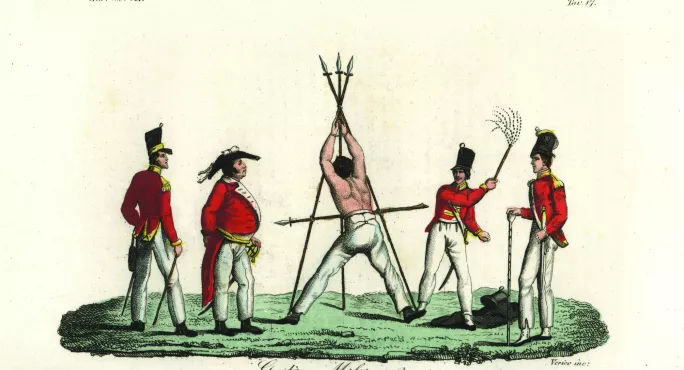- Home
- Parents’ view: Public floggings don’t work
Parents’ view: Public floggings don’t work

Occasionally, media stories - and they’re often apparently trivial ones - reveal that people have been harbouring strong views about something for a long time; they just haven’t been aired in public. When the news story breaks, suddenly people let it all out and before you know it, they are talking about it everywhere: on the bus, in the office, and on Mumsnet, of course.
A recent example was the story about the Darlington headteacher who wrote a letter to parents decrying their “increasing tendency...to escort children to and from school while wearing their pyjamas”. It followed a sadder news article from a couple of weeks before, in which another headteacher expressed concern about “an increasing number of children who are coming to school in a pretty shocking state…dirty, unkempt…obviously haven’t had a shower”.
While these stories are very different in terms of gravity (a lack of personal care for children is important by any metric; the wearing of pyjamas outdoors rather less so), both tap into a similar set of gnarly issues.
Let’s kick off with respectability: a much-bandied word, but a deeply subjective one. My definition of respectable is likely to differ from yours, and if what’s unstuffy to me comes across as uncouth to you, confusion is liable to arise.
Then there’s class, the great British bugbear. A woman in fleecy PJ bottoms and faux-fur boots is not, in qualitative terms, wearing something very different from the woman in softly expensive boyfriend jeans and ballet flats. Are people’s judgments based on class prejudice? There’s also room for the austerity debate: have low wages and benefits cuts left some families struggling in a way that affects their children?
And aspiration; it’s frustrating if some families don’t support their children to take full advantage of the enormous privilege of free education, and, of course, it’s the job of schools to coax children to do their best, whatever may be happening at home.
Finally, we come to child welfare. Schools have a responsibility to identify safeguarding concerns; ought dress (of either parent or child) to be viewed as a signifier?
I’ve written this list partly to reflect the conversation on Mumsnet, but also to acknowledge that these headteachers pulled the pins out of hand grenades that weren’t of their making.
Nevertheless, I can’t help thinking that very public letters on parenting issues should be a very last resort. They can be counterproductive: lots of parents rather resent being told what to do by teachers, and regress into adolescent contrarianism. If the aim is to build cooperation, a friendly word directly in the relevant ears might be more constructive.
Some heads perhaps also need to consider how far the school’s jurisdiction actually runs, and what will be achieved by trying to assert authority off school grounds. Whatever you’re trying to accomplish in schools, when you’re dealing with adults, it’s rarely helpful to treat them like they are children.
Justine Roberts is founder and chief executive of Mumsnet
@justine_roberts
This is an article from the 26 February edition of TES. This week’s TES magazine is available in all good newsagents. To download the digital edition, Android users can click here and iOS users can click here
Want to keep up with the latest education news and opinion? Follow TES on Twitter and like TES on Facebook
Keep reading for just £1 per month
You've reached your limit of free articles this month. Subscribe for £1 per month for three months and get:
- Unlimited access to all Tes magazine content
- Exclusive subscriber-only stories
- Award-winning email newsletters



